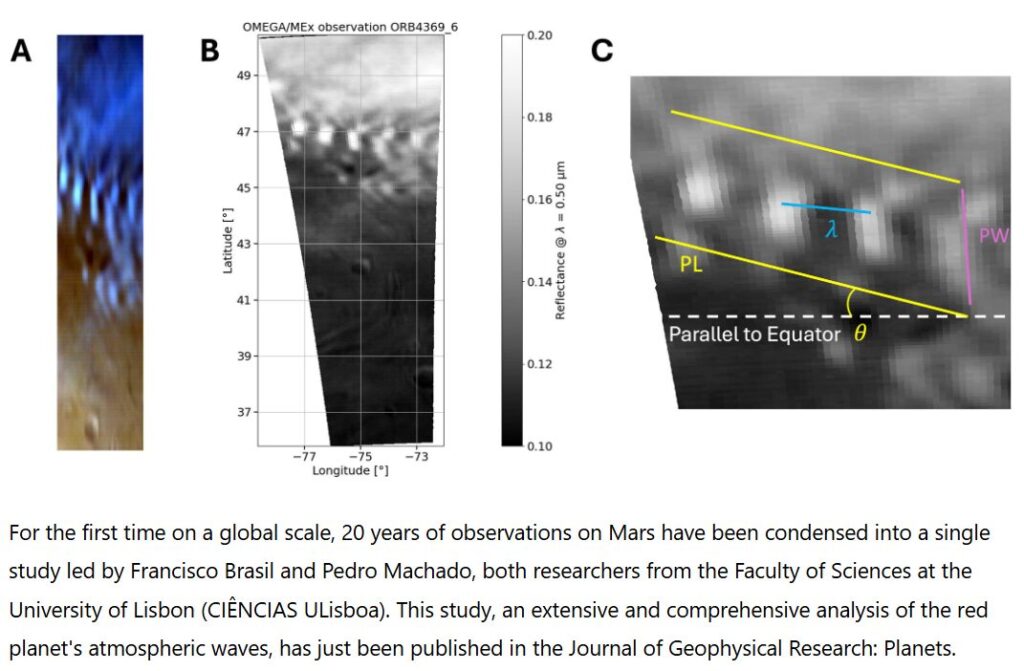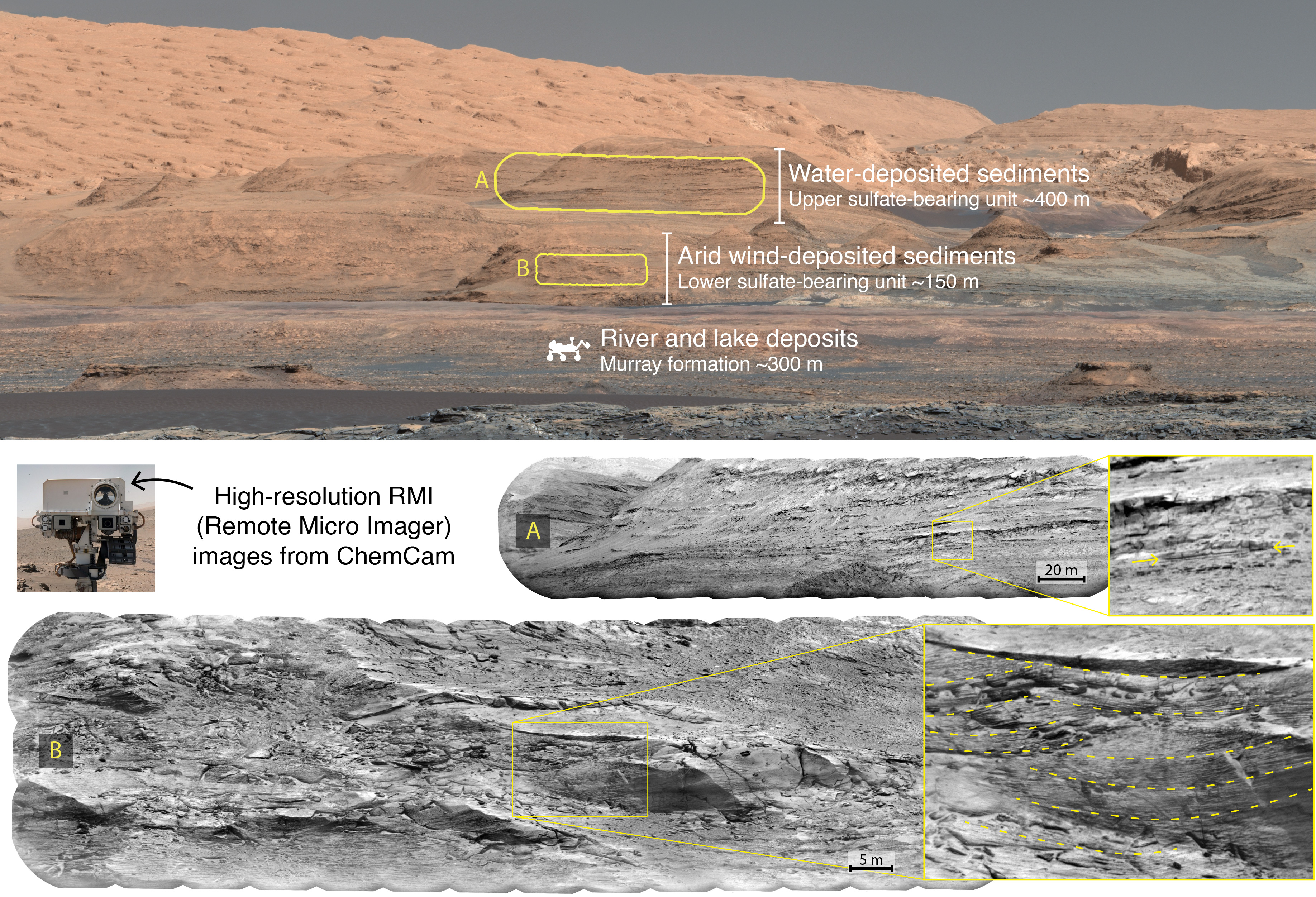
For the first time on a global scale, 20 years of observations on Mars have been condensed into a single study led by Francisco Brasil and Pedro Machado, both researchers from the Faculty of Sciences at the University of Lisbon (CIÊNCIAS ULisboa). This study, an extensive and comprehensive analysis of the red planet’s atmospheric waves, has just been published in the Journal of Geophysical Research: Planets.
Atmospheric waves are “wave-shaped disturbances that travel through the planet’s atmosphere, much like waves moving across the surface of water,” explains the study “Atmospheric Gravity Waves in Mars’ Lower Atmosphere: Nadir Observations From OMEGA/Mars Express Data.”
The researchers focused on this energy, which has a significant impact on the planet’s climate...
Read More







Recent Comments